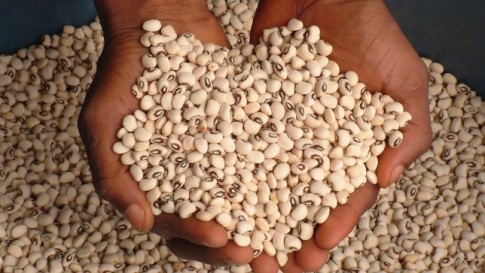– Ghanaian Government Sued over “Illegal” GM Crops Policy (Sustainable Pulse, Feb 10, 2015):
Food Sovereignty Ghana (FSG) has filed a writ of summons against the Ghanaian National Biosafety Committee (NBC) and the Ghanaian Ministry of Food and Agriculture MoFA, with an application for an interim injunction to stop any release or commercialization of genetically modified cowpeas and rice, until the provisions of Ghana’s Biosafety Act are expressly and fully obeyed.
FSG are not only calling for an injunction on the commercialization of GM rice and Bt cowpeas, but on all GM crops until the National Biosafety Authority is in place.
FSG have taken this action as a result of the fact that “Ghanaians are being constantly bombarded with news items containing false claims that the attempts to impose GM rice and beans are being done in accordance with the law.” FSG maintains that this is certainly and evidently not the case.
FSG’s case is very simple. According to Section 13 of the Biosafety Act, 2011, Act 831, on the “The application to import or place on the market”, only the National Biosafety Authority has such a power to authorize the commercial release of GM foods in Ghana. The law says:
”13. ( 1) A person shall not, without the prior written approval of the Authority, import or place on the market a genetically modified organism. (2) An application under subsection (1) shall include (a) The information set out in the Third Schedule (b) a risk assessment as set out in the Third Schedule, and (c) any other information that the applicant may consider necessary for an assessment of the potential risks and benefits of the requested activity.” See: Ghana Biosafety Act
According to the FSG, Ghana’s National Biosafety Authority “does not even exist, because it is yet to be inaugurated. No appointments have been made and approved even for it, so under what authority are those undertaking these dangerous experiments doing so, and who is supervising them? Apparently, even the National Biosafety Committee has no power of its own apart from the authority of the Minister for Industries, Science and Technology, MIST.”
Ghana is a signatory to the Cartagena Protocol on Biosafety. Article 23 of the Protocol requires Parties, on their own and in cooperation with other States and international bodies, to promote and facilitate public awareness and education, including access to information, regarding the safe transfer, handling and use of living modified organisms (LMOs). It also requires Parties to consult the public in the decision-making process, to make public the final decision taken and to inform public about the means of access to the Biosafety Clearing-House.
Meanwhile, Section 11 (1) of the Biosafety Act states very clearly that: “A person shall not conduct a contained or confined use activity involving genetically modified organisms or their development without the written approval of the Authority”. The law further stipulates in Section 42 (2) that “The Authority shall publish notices of final decisions concerning applications made under this Act in the Gazette and electronic and print media, in order to ensure public awareness and participation”. This law has not been followed by the Ghanaian authorities, who have created a veil of secrecy surrounding the experiments currently going on in Ghana, according to FSG.
FSG calls on all Ghanaians who care about the safety and the quality of food they are putting into their bodies, to show keen interest in this matter and provide them with the moral and material support we need to prosecute this case which is set to be a David versus Goliath struggle.
